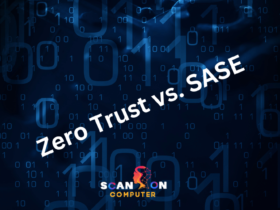The deep web encompasses everything that falls outside of mainstream web browsing – password-protected sites and nonexistent webpages alike – leading many users to accidentally stumble into its hidden depths without their knowing it.
Hackers use it to sell stolen data and whistleblowers use it to avoid Internet censorship. You can find everything from sexual services and drugs to hitmen and human trafficking on this hidden web.
Difference Between the Deep Web and the Dark Web
Staying abreast of all of the various terms related to the Internet can be tricky. While deep web and dark web are two distinct entities, they do share similar characteristics: both feature pages hidden away that cannot be reached via traditional search engines.
Imagine someone could use Google to discover and gain access to your private email account or electronic health records – this is why so many opt for the dark web, which protects their personal information from prying eyes and is particularly used by political whistle-blowers and journalists who risk arrest or censorship by their governments.
Unfortunately, the dark web has long been associated with illegal activities like drug dealing, child exploitation, and cybercrime marketplaces that sell stolen data to criminals. Because of this risk, it’s imperative that users implement antimalware and antivirus software on their computers in order to ward off infection by hackers – though most don’t actually need access to this part of the internet anyway! Luckily for most, accessing either deep web or dark web is unnecessary for their daily needs.
What Is the Deep Web?
The Deep Web refers to websites and pages not indexed by search engines, often due to encryption or anonymization browser software such as Tor (The Onion Routing project). Such content includes email accounts, private social media pages and subscription-based online services like Netflix – not for illicit purposes, but instead intended to protect user’s personal data from cybercriminals or other malicious actors.
Not all aspects of the dark web are created equal, however. Some marketplaces and forums on it have been known to sell stolen credit cards, drugs and guns; additionally, these marketplaces often host ransomware attacks or phishing attempts. You can avoid these dangers by practicing safe browsing habits such as using strong passwords and VPN when accessing banking accounts on public Wi-Fi networks; security personnel monitoring exchanges can gather threat intelligence to detect attacks before they even happen; monitoring transactions can detect money laundering activities that violate laws – all this makes this place less sinister than you might expect despite its sinister name!
What Is the Dark Web?
The dark web is a part of the Internet that cannot be searched with traditional search engines and contains illegal content such as marketplaces for stolen login credentials and personal data sold by cybercriminals, plus various illegal services that range from weapons, drugs and prostitution to prostitution services and even paid assassinations services.
Most regular internet users have likely unknowingly access deep web content without realizing it. Any activity online that requires authentication such as emails, bank accounts and private social media profiles resides on the dark web; these include your email, bank accounts and private social media profiles as well as any subscription-based websites like Netflix.
The dark web is also home to illegal marketplaces that sell anything from stolen credit card data and malware, firearms and illicit drugs to whistleblowers and political dissidents who wish to remain anonymous. To access it safely, a secure browser like Tor is essential.
What is the Surface Web?
The Surface Web (sometimes referred to as “Open or Clear Web”) encompasses all areas of the internet which can be accessed with traditional web browsers, including websites, blogs, social media posts and product listings. Most people encounter some form of Surface Web each day – it makes up about 90% of total internet content!
The Surface Web contains both legal and illegal content, with most being of legitimate nature. Companies often utilize it to conduct research, collect market intelligence and keep abreast of industry trends. Furthermore, cybercrime forums dedicated to selling stolen data or illegal firearms also exist on this platform.
To be considered part of the Surface Web, websites must be freely accessible and searchable by anyone; this does not entail complete anonymity – sites like Facebook allow users to log in with credentials. Since the Surface Web is public, search engines like Google can index its contents.
Applications of Dark Web
The Dark Web (sometimes referred to as “The Deep Web”) is an underground subset of the internet accessible only with special browser Tor. Using Tor allows a user to hide their identity and prevent sites from tracking their location or downloading viruses – thus permitting anonymity when visiting dark websites and making the internet an unsuitable platform for illegal activities like selling drugs or stolen credit card data.
However, the dark web does serve a legitimate purpose: journalists and people living under oppressive regimes often turn to it in order to communicate freely; additionally, its anonymity protects government and corporate whistleblowers.
The dark web contains an abundance of sensitive data, from email addresses and personal identifiers (PII) to cryptocurrency account credentials that could prove valuable to cybercriminals looking for new ways to gain entry to organizations’ systems. Therefore, it’s essential that organizations safeguard their cybersecurity by adhering to best practices and keeping informed of potential threats.
Applications of Deep Web
The deep web contains an assortment of content ranging from online commerce transactions and medical records, bank account data and bank account balances to email inboxes, chat messages and private content on social media sites which cannot be reached via traditional search engines such as email inboxes or chat messages accessed via traditional search engines such as Gmail or Yahoo Messenger – as well as sites which require paywalls or utilize encryption software to protect users’ privacy.
One major source of deep web content comes from fee-for-service sites like Netflix. These services offer users premium productivity tools in exchange for payment; this limits usage to only those willing and able to pay, potentially undermining the egalitarian spirit of the internet and making it harder for those without money access tools they need for work and life.
While not solely malicious, the dark web offers plenty of opportunities for fraud and abuse. While cybercriminals use it to steal personal and company data, activists who wish to avoid surveillance or those seeking a secure environment for organizing can use it effectively as well.
Why not use Deep Web?
The deep web consists of websites not indexed by search engines as they require password or user id authentication in order to gain entry. Examples include subscription-based sites like Netflix as well as academic research databases. Furthermore, intranets used by private businesses or schools also make up part of this online space.
Many people utilize the deep web without even realizing it; bank and social media login credentials stored on it, while accessing emails stored there, cloud storage services or restricted-access forums, etc. Though generally safe, such browsing could become risky if an individual or government agency discovers what information has been accessed from it.
The dark web is home to illegal markets where stolen credit card data, firearms and malware can be purchased illegally, as well as illicit activities like prostitution, sex trafficking and drug dealing – activities which threaten society in their entirety and pose a danger. Therefore, it’s crucial that users practice basic online hygiene when browsing any website including deep web.
How to access the dark web?
The dark web refers to all information stored behind password-protected or other security walls that search engines cannot easily crawl; many of these websites also ask search engines not to index them.
The dark web contains illegal products and services such as paid assassinations and sex trafficking, hacked data that criminals can exploit to steal personal and financial information from users, and targeted attacks such as Norton 360 Deluxe Dark Web Monitoring software features to avoid being victimized by such attacks. To stay safe while exploring this realm of the deep web, users should install software features like Norton 360 Deluxe Dark Web Monitoring in their computer systems to monitor this dangerous region of cyberspace.
However, much of the dark web serves a legitimate and useful function. For example, people living in authoritarian nations can bypass government restrictions to gain access to online news services like The New York Times. Furthermore, those using Tor browser to gain entry to dark web can download pirated music or movies or access content that would normally be blocked in their country.
Deep Web Vs Dark Web
The deep web refers to that portion of the Internet that cannot be searched using standard search engines; this vast area can only be reached with specific browser software.
Accidentally stumbling across harmful content or illegal activities when browsing the deep web can be easy. Users have reported finding adult content sites and services such as pedophilia on the dark net.
Why use Dark Web?
The dark web gives people the opportunity to communicate and access information without risking being tracked by traditional search engines, while remaining anonymous – which has drawn dissidents, journalists and others seeking protection against threats or persecution to this alternative form of communication and browsing.
The internet resembles an iceberg in that its surface web is easily accessible to everyone while its deep web can only be reached with special software.
Tor is a software program that will keep your identity hidden while browsing the dark web, by encrypting and sending traffic encrypted over various nodes or relays throughout the world – this process is known as onion routing, and helps protect from hackers and other potentially dangerous agents.
Though the dark web often gets a bad rep, it can still be used for good. For instance, medical professionals can offer advice without fear that their identities would become known publicly; additionally, its anonymity provides protection from stalkers or bullies.
What is Tor Project?
The Tor Project is a nonprofit dedicated to aiding users in their exploration of the dark web. Their software creates a network of relays and bridges that make it impossible for anyone to track your location or activity online; your data becomes mixed up with that of other Tor users creating an unpredictable path for anyone following you.
The dark web refers to websites not indexed by search engines like Google and requires special browsers like Tor to access. Although often associated with illegal activity, its use for legitimate purposes such as whistleblowing or journalism is growing rapidly – for instance it has become particularly popular among whistleblowers who need to protect their identity when communicating with sources anonymously.
The deep and dark web can seem confusing at first, but learning more about these two concepts will help protect your privacy while avoiding dangerous websites. Be sure to equip your device with trusted cybersecurity software and follow best practices when accessing the dark web, or else cyber attacks could jeopardize both personal information as well as financial security.
Best practices of using Dark web
Although often associated with criminal activity, the dark web offers tools that can assist people in protecting their privacy and security. It hosts websites requiring credentials like passwords or login information in order to access them; such as online banking accounts, private social media profiles or subscription services.
Furthermore, the dark web provides a way for individuals to circumvent Internet censorship in countries where government restricts free speech and online freedoms. For instance, people can access news articles from sites blocked in their country via this avenue.
Tor is an advanced browser designed specifically to navigate the dark web, routing your traffic through various servers to mask your IP address and location, while also encrypting data to prevent identity theft or cyberthreats. When accessing dark web websites, use a secure VPN and have reliable cybersecurity software installed so your computer is protected against malware, viruses and ransomware; additionally only visit trustworthy sites to avoid scams or any potential dangers.
Is It Illegal to Access the Deep Web or dark?
Though the dark web has an unsavoury reputation, accessing it doesn’t necessarily break any laws. Some parts of it contain legitimate content like password-protected websites and databases with academic research material as well as intranets used by businesses or schools. Unfortunately, other parts are host to illegal or dangerous activities like drug sales, weapons sales, counterfeit money trading, child pornography etc. To stay safe when browsing such an underground or dark network environment it is wise to utilize recommended security practices including using VPN services when browsing such depths of the deep or dark web such as when using deep or darknet sites in general.
Malware lurks throughout the dark web, infecting unsuspecting victims much as it would on the surface internet. Malware can even be sold on portals on this underground market for attackers to access user computers and gain personal data for theft. You can protect yourself by assessing your threat environment with endpoint security solutions like Kaspersky Security Cloud and using an antivirus program like Kaspersky Protection Cloud.
Final Thoughts
The dark web provides many advantages, including keeping online activity anonymous. It is used for secure payments, by activists seeking to bypass government censorship and by those looking for private communication on the internet. Unfortunately, however, its anonymity also enables cybercriminals to conceal their crimes and protect themselves using tools such as Tor.
The Deep Web refers to any content not indexed by search engines, including email messages, chat conversations and private content on social media sites. Furthermore, this category encompasses websites requiring passwords or subscription fees as well as sites blocked by search engine bots.
The dark web has long been associated with illegal activity; however, it also contains sites offering legal goods and services. Many use it to access pirated music and movies while others use it to bypass government censorship to view TV and movie content that’s unavailable in their country.











Leave a Reply
View Comments